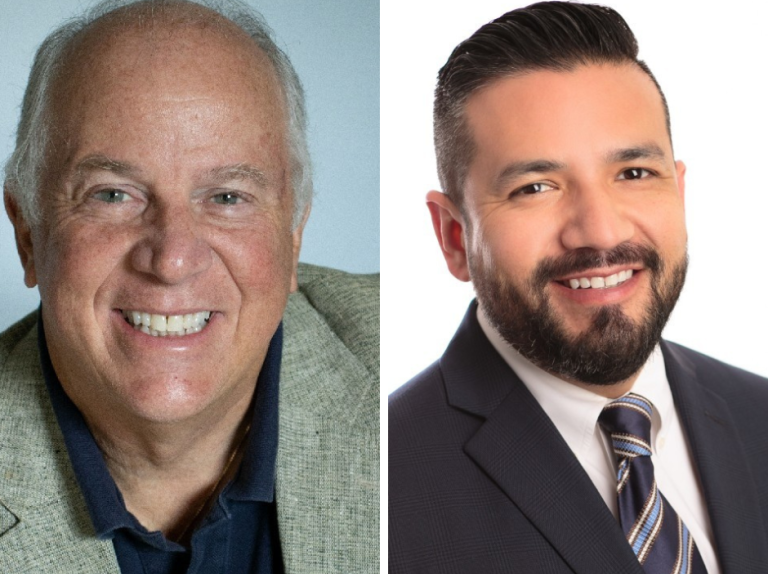
A note from Kurt Krause of VisitNorfolk and Gary Sanchez of Visit Dallas
Our 2023 Advocacy Committee meets every two weeks to discuss the latest issues and threats that face destination organizations. In our inaugural quarterly release, below is a collection of all topics discussed and the collective notes and commentary from the advocacy committee co-chairs:
- Rhetoric and push back against "woke" activities by state/provincial and local governments.
- Mental Health and Wellbeing
- Artificial Intelligence and the advancements of our digital tools
- Environmental Social Governance (ESG) Investing.
Topic – Attacks/Pushback to Woke Topics
KK: I found this topic generated one of the more engaging and thoughtprovoking conversations. While a few of us have not experienced the weaponizing of the term to our local tourism industry, the political impact is real and potentially damaging. As true hospitality hosts, we must be welcoming to all. I am very grateful for our advocacy committee colleagues who so eloquently defined the term woke and how the intent was to deliver a positive sentiment to overcome injustices, particularly in the African American community. We have seen in the past year or so an effort to curb or halt any positive discussion and community development. This desire to hold back progress flies in the face of the DI objective that our local residents are our
primary customer, hence the effort for all DMOs to exhibit a shared value in our community, making our DMO team an asset for the community. We must continue to be a force of change that is open and inclusive, encouraging conversation and arguing against the cancelation or relocating of events or conventions or discouraging travel to any destination.
GS: At the very core of who we are as individuals and our charge as a Destination Marketing Organization (DMO) is the sense of hospitality, and the strong desire to make all guests feel welcomed in our town. To do this successfully, we must continue to educate ourselves (and one another) on different cultures, customs, traditions, lifestyles, histories, and as needed, adapt to societal changes and progress. In an unexpected way, a city’s DMO serves as a repository of collected information and knowledge of visitors’ needs, wants, and expectations, and acts as a resource of knowledge for local leaders to determine how welcoming their city is (or is perceived to be). Because of our nature to be welcoming, hospitable, and inclusive, DMOs can be perceived to favor one ideology over another, and with the recent politicization of the term, “woke,” can be targeted by some who have different views. It’s unfortunate that the origin of “woke” has positive sentiment within the African American community but is now utilized as a notion of exaggerated political correctness, and in its most extreme interpretation, anti-patriotic. Collectively, we cannot allow this targeting to influence the communities we serve, and our duty to market our destinations as respectful and welcoming to everyone.
Topic – Organizational and Personal Wellbeing
KK: A very timely discussion that provided several great ideas. Arguably we have made it through the COVID Pandemic. While many suffered and others struggled there were lessons to be applied for anyone in a leadership role. The Pandemic forced families to partially, even entirely, change their lifestyle. Working from home, attending class from home, and feeling more comfortable/safe inside rather than venturing out. For a significant moment in time the work-life balance was completely turned upside down. This challenge motivated many on the call to develop and implement new policies to achieve the work still required and yet be empathetic to the personal needs of our teammates. Working from home has become a necessity. The hours of work modified to accommodate and best suit the family. Consequently, many of us now offer a mix of work from the office and days to work from home. In some cases, a four-day work week is an option. Some DMOs offer floating holidays
and encourage staff to take the time and truly experience the attractions of the region. Mental, physical, and emotional wellness in general has now become a priority and a significant benefit. One of the early lessons in my career, Mr. Marriott taught us to take care of our workforce so they can do their very best to take care of the customer. Those words have never been more important to leadership today. Mental Health and well-being also include us as leaders, to set the example and observe the signs of fatigue in our workforce. And self, to which I am guilty. Thank you, Advocacy committee and our happy hour, for this very valuable lesson.
GS: Always searching for the “silver lining,” I’m thankful 2020 brought the topic of mental health to the workplace. Once hidden subjects and inappropriate to address at the office, mental health and wellbeing surfaced as basic needs for everyone and are now being addressed within our industry. The COVID-19 pandemic revealed a reassessment of personal priorities, the desire for flexibility in work schedules, and the need for a legitimate work-life balance. The pandemic left us with a heightened sense of empathy leading to improved emotional intelligence, guiding us to address mental health and wellbeing for one another, thus leading us to explore policies, programs, services, and other resources for our friends and co-workers. At Visit Dallas, one of our core values is Sustainability – as it relates to the environment, but also the sustainability of self; to be aware of one’s own mental health and wellbeing and we are seeking ways our organization can provide the tools and resources to sustain oneself and be successful.
Topic – A.I and the Advancements of Digital Tools
KK: I must admit I did not take the time prior to our happy hour to read Jack Johnson’s blog Generative AI: An Interview with ChatGPT. Absolutely my loss. If you have not read Jack’s article, I would encourage you to do so, especially if you are intrigued by why the Evolution of Digital Platforms made the DI list of 8 Significant Issues and Strategic Opportunities.
GS: Artificial Intelligence (AI) is progressing rapidly, and it impacts each of us – personally and in our profession. Within the travel and tourism industry, it is an intriguing and provocative topic. As AI advances within our industry, we must learn to positively adapt to its benefits, but be cautious of its unintended consequences. Beneficially, AI can be utilized to track visitor sentiment, tailor one’s trip to a new destination, provide language translations, allow one to visit a city, attraction, or time through the use of virtual reality (VR), and generally improve the visitor experience; however, that same technology will be created by human minds, and therefore will have the potential to unknowingly embed biases and prejudices into its software, potentially leading to forms of stereotyping, discrimination and inequities. Moving forward, we must strive to find a balance between the benefits of AI and the need for human connection.
Topic – ESG Crossfire & Attacks
KK: Environmental Social Governance is yet another topic for deep conversation. Most of us are realizing the challenging impact our environment is having on our daily lives. More and more of us are recognizing that we all should be greater and more responsible stewards of the environment. While the topic and attacks are often focused on the financial institutions. As it relates to the traveler, how will destinations establish their brand relative to ESG standards through sustainability practices? Becoming carbon neutral? As DMOs seek shared community values, will they be supported by the residents? Travelers today may not be aware of environmental or social attacks based on ESG initiatives, in which case, the DMOs must be transparent to their position. There are more positives than negatives to protecting the environment and social graces, I recommend that we are clear on where we stand.
GS: Just as we’ve observed a political divide with Equity, Diversity, and Inclusion (EDI) principles, practices, and policies across the country and perhaps in our respective destination, we’re beginning to experience similar sentiments and backlash with Environmental, Social, and Governance (ESG) concepts. The approach and conversational tone across the political spectrum resonate like conversations about EDI and the concept of “wokeness.” As expected, the debate is gaining momentum in conservative-led states with progressively led cities, adding to the ongoing struggle between decentralization and local control, and attempts to enforce preemptive legislation. For example, in August 2022, Texas banned 10 financial firms from doing business with the state because they did not “support” the oil and gas industry and may have demonstrated a preference for renewable energy companies. This was a direct result of a law that prohibited most state agencies and local governments from contracting with firms that have severed ties with carbon-emitting energy companies. As with the concept of EDI, DMOs are often positioned in a state of limbo if their blue-led destination resides within a red-led state, and associations are restricted from doing business with them. We know that the weaponization of travel and boycotts are ineffective, and we are learning that the savvy traveler is seeking destinations that align with their ESG (and DEI) values. To continue marketing our destinations effectively, we must continue navigating through the political landscape to build positive working relationships with local, state, and national leaders, and demonstrate the significant value our industry brings to all communities.


